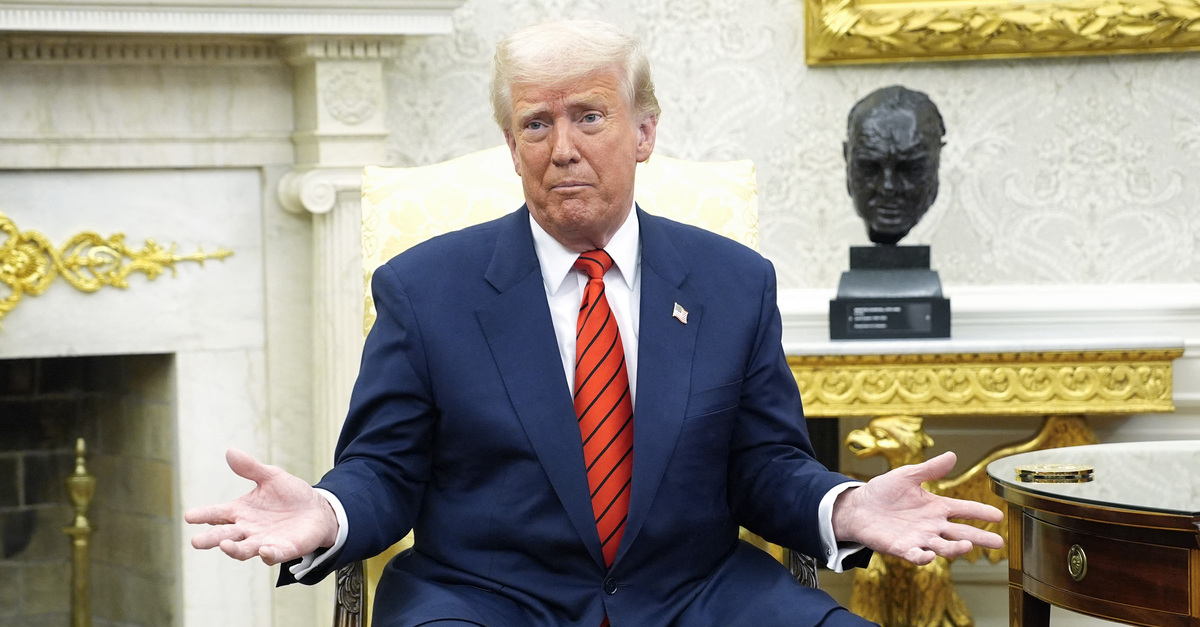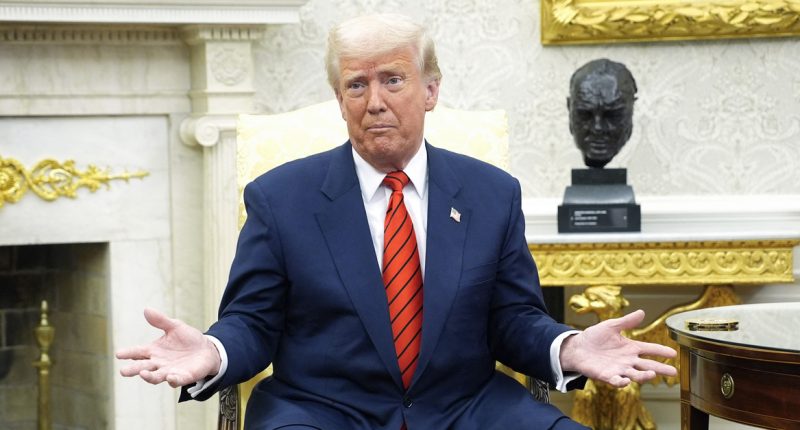
US President Donald Trump sits during his meeting with NATO Secretary General Mark Rutte in the Oval Office of the White House in Washington on March 13, 2025. Photo by Yuri Gripas/Abaca/Sipa USA (Sipa via AP Images).
A federal judge in Washington, D.C., on Friday, took the Trump administration to task over its use of an 18th-century wartime power to summarily deport more than 100 alleged Venezuelan gang members to a notorious prison in El Salvador without due process. The case quickly became a legal tinderbox, beginning when the administration allegedly ignored a court order directing it to have two planes full of migrants immediately returned to the country.
U.S. District Judge James Boasberg wasted no time in calling out Deputy Assistant Attorney General Drew Ensign over the Justice Department’s conduct in connection with the case, particularly highlighting the tone and tenor the government has employed in recent court filings.
The judge said the filings contained “the kind of intemperate and disrespectful language that I am not used to hearing from the United States.”
Boasberg also repeatedly indicated that he was skeptical that President Donald Trump’s invocation of the Alien Enemies Act of 1798 could be used during peacetime and against a nebulously defined “enemy” — in this case the Venezuelan gang Tran de Aragua (TdA) — as opposed to a foreign government.
The judge appeared even more concerned that those detained and deported under the statute seemingly have no way to challenge being detained and shipped off to another country’s prison.
“I agree the policy ramifications of this are incredibly troublesome and problematic and concerning,” Boasberg said. “I agree it’s an unprecedented and expanded use of an act that has only been used in the War of 1812, World War I and World War II, when there was no question there was a declaration of war and who the enemy was.”
At several points during Friday’s hearing, Boasberg also said that Ensign “must agree” that granting a president that much power was an “awfully frightening prospect” that was apparently “a long way” from what Congress intended when the law was enacted. Ensign repeatedly avoided responding to the judge’s prompting, eventually saying that it would be up to the political branches of government to curtail such powers if they saw fit.
Boasberg also pledged to learn whether the Trump administration had intentionally flouted his March 15 oral order to have two planeloads of migrants being deported under the Alien Enemies Act returned to the country.
“The government’s not being terribly cooperative at this point, but I will get to the bottom of whether they violated my word and who ordered this and the consequences,” he said.
In court filings, the government has claimed that because the directive wasn’t memorialized in Boasberg’s written order, they viewed it as a non-order. However, Ensign on Friday confirmed that he understood the order was to have the planes turn around, telling the judge, “I understood your intent and that you meant [the order] to be effective at that time.”
Contentious exchanges between Boasberg and DOJ attorneys throughout the week led to President Trump calling for the judge’s impeachment from his lifetime appointment to the bench. A House Republican introduced articles of impeachment for Boasberg a short while later.
Trump’s diatribe against Boasberg led to a swift rebuke from Supreme Court Chief Justice John Roberts, who issued a rare public statement saying that “impeachment is not an appropriate response to disagreement concerning a judicial decision.”
Love true crime? Sign up for our newsletter, The Law&Crime Docket, to get the latest real-life crime stories delivered right to your inbox.








